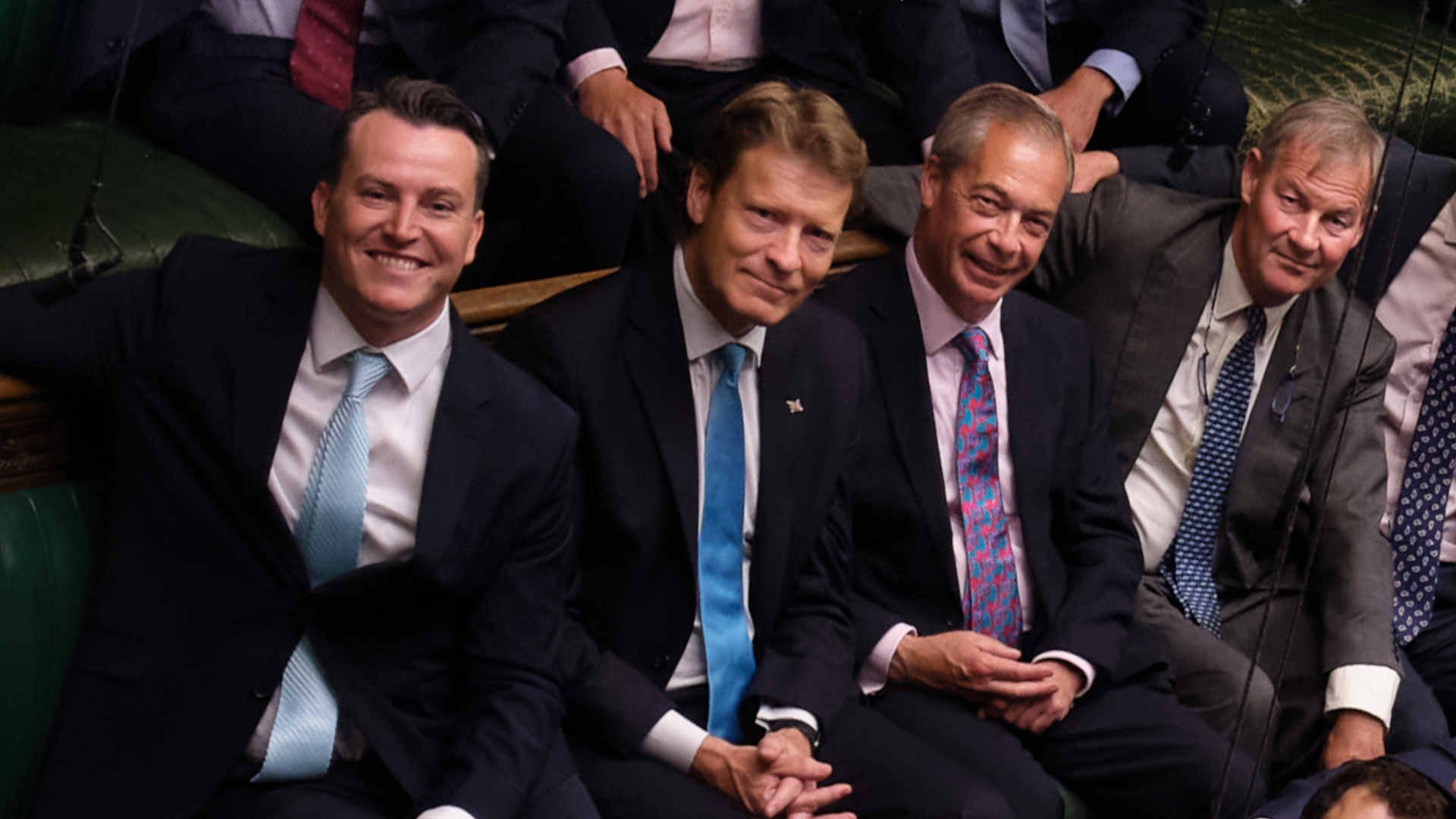 BBC News
BBC NewsBorrowing was £17.4bn last month, the second highest October figure since monthly records began in 1993.

Finito World
Something is changing. Reform UK—once a political footnote, now a growing presence—is no longer simply a repository for Brexit nostalgia or protest votes. With five MPs and a regional mayor under its belt, the party is becoming a more durable part of the conversation. And as it stakes out its identity, a central question emerges: what does Reform UK actually offer the country in terms of work, jobs, and employability?
At first glance, the answer appears simple. Reform’s policies centre on the idea that work should be encouraged, rewarded, and protected. That means tax cuts—big ones. The party proposes raising the income tax threshold to £20,000, which would lift many low earners out of tax altogether, and reducing corporation tax to 15%, a stark drop from the current 25%. In this, Reform pitches itself as the friend of both the small business owner and the self-employed contractor, particularly with its call to scrap IR35 rules that have long frustrated freelance workers.
There is a philosophical clarity here, however blunt its expression: a belief that the state should do less, tax less, and step back so that enterprise can step forward. For Richard Tice and Nigel Farage—two of the party’s most prominent figures—prosperity is something unleashed with the sort of dramatic strokes of the pen we saw in Donald Trump’s first 100 days. As Farage recently put it: “Britain is groaning under the weight of over-regulation and punitive taxation. Let’s give people their freedom back.”
It might not seem so effective if the Conservatives didn’t currently seem so hesitant and directionless. Since replacing Rishi Sunak, Kemi Badenoch has struggled to define a clear platform or steady the ship. Despite early promise, her leadership has been marked more by absence than initiative—she is only really known now for having no policies at all. With little clarity from the top, the party has failed to present a coherent response to the mounting economic and social pressures facing working people.
Where Badenoch’s Conservatives have dithered, Reform has made its pitch boldly. On welfare, the party proposes a four-month limit on unemployment benefits. Miss two job offers, and support is withdrawn. This is a sharper, more disciplinarian system than that currently in place, reflecting a clear moral judgement: that work is not just economically necessary but socially virtuous. Critics, however, worry that it risks punishing people who fall between the cracks—those with caring responsibilities, patchy mental health, or who live in regions where decent jobs are simply hard to find.
The Institute for Fiscal Studies has cast doubt on whether these policies are financially viable. According to their analysis, the cost of Reform’s tax cuts would be so significant that public spending elsewhere would need to be slashed—by as much as £50 billion, the IFS estimates. In practice, that would likely mean cuts to services on which many workers rely: transport, childcare, training schemes, and the very Jobcentres that would be enforcing these stricter rules.
And yet, in one area, Reform may be onto something that deserves closer attention: vocational training. The party has voiced strong support for apprenticeships, promising tax incentives for companies who take them on. It has also emphasised the importance of re-skilling workers aged 16 to 34, particularly in trades and technical roles. In a country where the university route has dominated and too many young people leave education unprepared for the job market, this feels like a constructive intervention.
Here again, the contrast with the Conservatives is instructive. While previous governments have introduced schemes like T-Levels and pledged more funding for further education, progress has been slow and often underfunded. Under Badenoch, the Conservatives can sometimes seem as though they have stalled altogether. Reform’s framing is clearer: the country needs skills—not just degrees—and work should be rooted in training that has purpose.
Still, clarity of intent does not equal clarity of delivery: there remain serious doubts as to whether Farage could function as a Prime Minister. His appetite for policy detail is not great, and scaling from five MPs to the hundreds needed for government is a huge challenge, especially in the UK system: we do not, or so we thought, do Emmanuel Macron in this country.
For a party without a full costed plan, without the machinery of Whitehall behind it, and without the moderating structures of a large political operation, questions remain about how Reform would implement any of this. And beyond policy lies the deeper cultural question: do people want the state to do less, or do they want it to do better?
Reform is betting on the former. Its rise reflects a broader impatience with managed decline and cautious governance. Voters sense that work isn’t working—for them, their children, or their communities. Pay has stagnated, insecurity has grown, and for too many, effort no longer leads to reward. In that climate, a party promising simple solutions—lower taxes, less red tape, more jobs—has its appeal.
Of course simplification always carries risk. Real economies are not ideological constructs; they are messy, interdependent systems. You can cut taxes and still shrink the workforce if you also cut childcare. You can tighten welfare, but people need realistic paths into work. And you can praise apprenticeships, but without proper funding and employer engagement, few will follow.
In the end, Reform UK has done something important: it has placed work at the centre of political debate. It may not yet have the answers – though at the moment all it needs is the implications of its tone. But it has asked a question that resonates more deeply than many would like to admit—what has happened to the promise of work, and who, if anyone, is prepared to rebuild it?